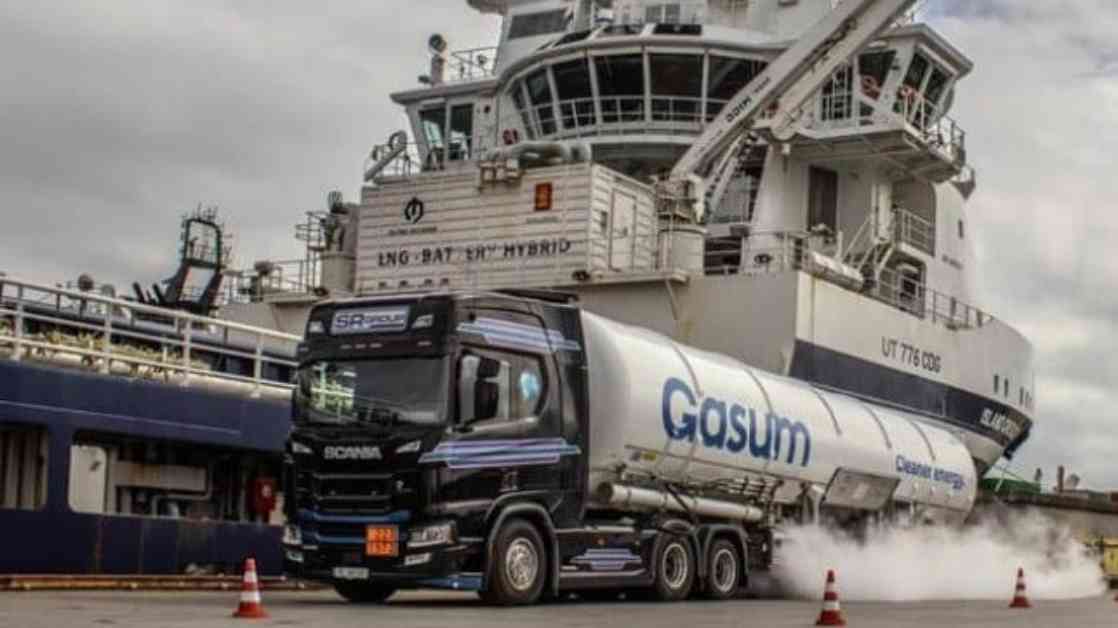Gasum, a Nordic energy company owned by the State of Finland, has announced a partnership with Equinor to enhance bio-LNG operations in the Port of Dusavik, in Stavanger, Norway. This collaboration aims to further develop the use of liquefied biomethane (bio-LNG) as a sustainable fuel source for offshore supply vessels (OSVs).
The recent bio-LNG bunkering operation in mid-July marked a significant milestone in the project. Gasum plans to continue supplying the OSV Island Crusader with regular bio-LNG deliveries, with each truckload containing approximately 22 tons of bio-LNG. This initiative builds upon earlier successful tests in 2021, which saw the Island Crusader become the first offshore supply vessel on the Norwegian shelf to run on biofuel.
The Island Crusader, built in 2012 by Vard, is equipped with innovative LNG hybrid battery technology. In addition to using pure LNG as fuel, the vessel features an 896 kWh battery pack that enhances its environmental performance. Operated by Island Offshore under charter to Equinor, the vessel has undergone engine certification tests by Bergen Engines to enable the use of biofuel without any modifications.
Biogas, which can be used interchangeably with natural gas, is produced from renewable sources such as biowaste, sewage sludge, manure, and agricultural by-products. With life-cycle greenhouse gas emissions up to 90 percent lower than fossil fuels, biogas is a sustainable and environmentally friendly alternative for various applications, including road and maritime transport.
Gasum’s commitment to increasing the production and supply of renewable gas aligns with its goal to offer 7 TWh of renewable gas annually to customers by 2027. This includes biomethane and e-methane, with a focus on establishing long-term partnerships with certified biogas producers across Europe. If successful, this initiative could result in a significant reduction in carbon dioxide emissions, benefiting both Gasum and its customers.
The collaboration between Gasum and Equinor represents a significant step towards the widespread adoption of renewable energy sources in the maritime industry. By leveraging bio-LNG as a sustainable fuel alternative, both companies are contributing to the global effort to reduce greenhouse gas emissions and promote environmental stewardship in the shipping sector.


